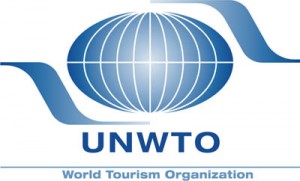 UNWTO Secretary-General, Taleb Rifai, has expressed serious concerns about the negative impact that a new tourism tax on air passengers and hotel guests in Africa, currently being discussed among members of the African Union, would have on Africa´s tourism sector. Tourism is one of the main contributors to Africa’s balance of payments, a source of livelihood for millions in the continent and one of the sectors where the region has a major competitive advantage in international markets.
UNWTO Secretary-General, Taleb Rifai, has expressed serious concerns about the negative impact that a new tourism tax on air passengers and hotel guests in Africa, currently being discussed among members of the African Union, would have on Africa´s tourism sector. Tourism is one of the main contributors to Africa’s balance of payments, a source of livelihood for millions in the continent and one of the sectors where the region has a major competitive advantage in international markets.
Mr Rifai alerted that “A tourism tax in Africa is a threat to the competiveness of the region and to all African economies which increasingly have tourism as a key pillar to their development. Any decision on the possible imposition of a tourism tax in Africa should be carefully evaluated as to the negative impact it will have on tourism demand, economic growth and jobs”.
This concern was echoed by the Ministers of Tourism of the region attending the 56th Meeting of the UNWTO Commission for Africa, held in Angola last month. Participants identified increased taxation as one of the main obstacles to the sustainable development of tourism and aviation in the region. Connectivity is one of the major barriers to Africa´s tourism growth and a further increase in the cost of air travel to the continent would jeopardize the need to increase intra and interregional air access across Africa.
International tourism in Africa has been growing steadily in recent years. In 2013, Africa received 56 million tourists up from 26 million in 2000. International tourism generates US$34 billion in exports in Africa, accounting for as much as 7% of all exports and 56% of the region’s services exports. Yet despite such progress, tourism in Africa is still in its early development stage, accounting for only 5% of international tourism, and faces several barriers impeding its further growth and competitiveness.
The imposition of a tourism tax in Africa will impact not only the tourism sector, but African economies as a whole, as every tourist means more jobs and business opportunities in tourism but also in related sectors, higher income for families, increased investment and more opportunities for grassroots development.











